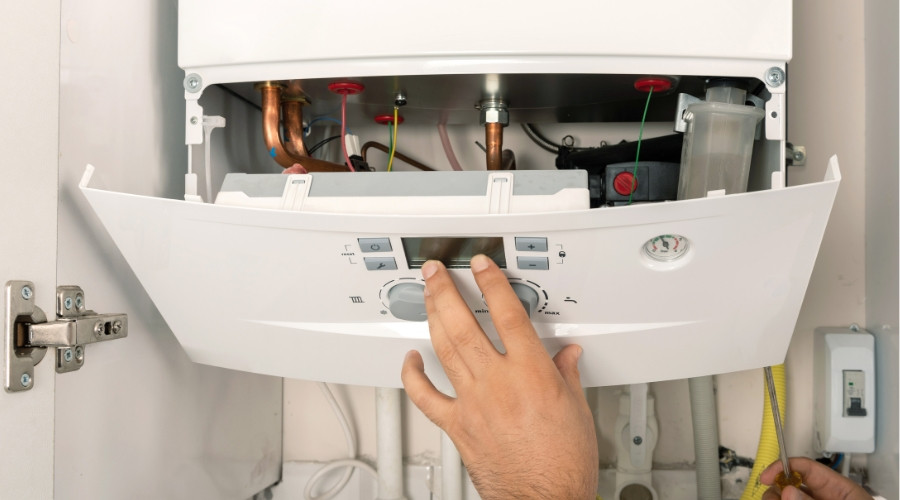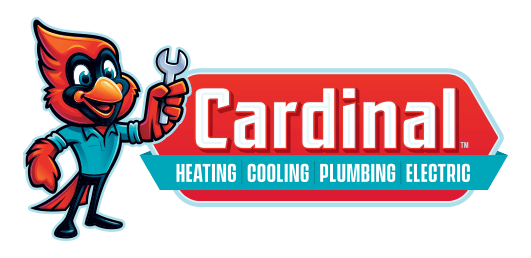Boiler Basics to Help Keep a Home Warm and Efficient
Choosing among various boilers can seem complicated, but it doesn’t have to be. This guide explains how a boiler heating system works, what advantages set it apart from other options, and which signs suggest boiler repair or boiler replacement may be wise. It also covers practical ways to boost efficiency through professional boiler maintenance and thoughtful boiler installation choices.
What Is a Boiler?
A boiler is a closed-vessel heating system that warms water or produces steam, then circulates that heat through radiators, baseboard heaters, or radiant floors. Unlike forced-air equipment that pushes heated air through ductwork, a boiler heating system uses water as the medium for heat transfer. The result is steady, even warmth with less air movement—often quieter and more consistent than ducted systems.
Many households value the comfort and flexibility hydronic systems provide. Radiant heat warms surfaces and rooms evenly, helping reduce drafts and temperature swings. Because there’s no constant airflow through vents, boilers typically circulate fewer airborne particles, which can support cleaner indoor air. Modern boilers are designed with efficiency in mind, and with a suitable boiler installation—including proper piping, circulators, and controls—performance can remain stable across long heating seasons.
Boilers also offer versatility. Depending on model and configuration, a single unit may supply both space heating and domestic hot water, simplifying equipment needs. With zoning controls, temperature can be tailored room by room, aligning heat delivery with how spaces are actually used. When combined with regular boiler maintenance and sensible operating practices, this approach helps maintain comfort while managing energy use.
Signs That Boiler Repair Is Needed
 Most systems give early clues before a breakdown. Moisture or water around the base of the boiler or connected piping is a clear sign that something needs attention—seals, valves, or corrosion may be at play. Unusual noises, such as banging, whistling, or persistent gurgling, can indicate trapped air, scale buildup, or circulation problems that reduce efficiency and strain components.
Most systems give early clues before a breakdown. Moisture or water around the base of the boiler or connected piping is a clear sign that something needs attention—seals, valves, or corrosion may be at play. Unusual noises, such as banging, whistling, or persistent gurgling, can indicate trapped air, scale buildup, or circulation problems that reduce efficiency and strain components.
Performance concerns also matter. If parts of the home remain cool while other areas become warm, it may point to a stuck valve, a weak pump, or improper system balance. Slower heat-up times, frequent on-off cycling, or a noticeable jump in energy costs without a weather-related reason can all suggest that boiler repair or deeper inspection is needed. Inconsistent flame quality, repeated lockouts, or the need to reset controls often are signs that a professional should evaluate the unit.
When issues recur despite service or the unit is nearing the end of its expected life—comparing the cost of ongoing fixes to the value of a planned boiler replacement can clarify the best path forward. An upgraded boiler installation may improve efficiency, stabilize comfort, and reduce maintenance calls over time, especially when paired with updated controls and circulators.
How to Keep a Boiler Efficient
 Regular boiler maintenance is the foundation of reliable operation and steady efficiency. A professional tune-up typically includes cleaning heat-transfer surfaces, verifying pump operation and system pressure, checking flue passages, and testing safety controls. Technicians also review controls and thermostats to confirm that the boiler heating system fires and circulates as intended. These steps help the unit operate cleanly and reduce the risk of mid-season breakdowns.
Regular boiler maintenance is the foundation of reliable operation and steady efficiency. A professional tune-up typically includes cleaning heat-transfer surfaces, verifying pump operation and system pressure, checking flue passages, and testing safety controls. Technicians also review controls and thermostats to confirm that the boiler heating system fires and circulates as intended. These steps help the unit operate cleanly and reduce the risk of mid-season breakdowns.
Between tune-ups, a few habits support efficiency. Keep radiators and baseboard heaters clear of furniture and dust so heat can transfer into rooms freely. Bleed air from radiators if cool spots develop, and monitor system pressure or temperature for unusual changes. Where water quality is a concern, recommended treatment can help limit scale and corrosion that undermine performance.
Upgrades can further strengthen results. Zoning, modern thermostats, and smart controls better match heat delivery to real usage patterns, reducing run time and improving comfort. In older systems, replacing tired pumps, valves, or controls can stabilize operation and reduce noise. If a unit struggles despite consistent care, consulting a qualified professional about right-sized boiler installation can reset the baseline for comfort, safety, and efficiency with fewer surprises.
With a clear understanding of how a boiler heating system works, the signs that prompt timely boiler repair, and the value of ongoing boiler maintenance, it’s easier to maintain comfort and efficiency season after season. When aging equipment or recurring issues point to diminishing returns, a well-planned boiler replacement can deliver long-term reliability and more predictable operating costs.
About Cardinal Heating, Cooling, Plumbing & Electric
Cardinal Heating, Cooling, Plumbing & Electric is a leading provider of plumbing, HVAC, and electrical services, offering over 40 years of dedicated service to the communities of Fitchburg and its surrounding areas. Call them today for fast, clean, and professional boiler services in Fitchburg, WI.




